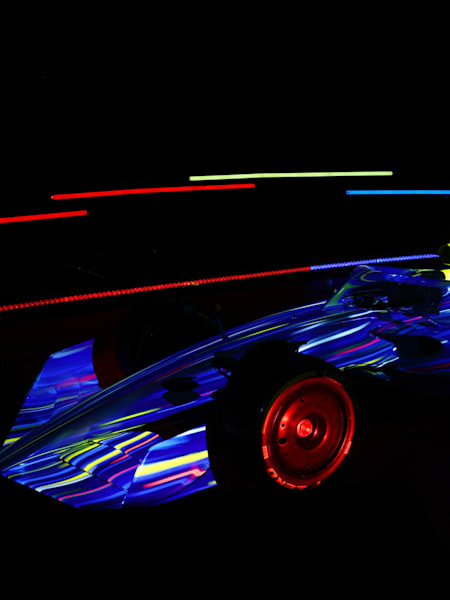01
The Real Deal—an actual F1 car
Cost: Around $15.9 million
Sticking an actual price tag on a current F1 car is difficult. An F1 team may spend $145.6 million (just adjusted for higher transportation costs plus inflation) in the 2022 season, but all of the team's expenses (minus driver salaries and a few other exceptions) must be met from that. Simply halving the budget cap sum, therefore, falls far short of the mark.
We know the actual prices of a few elements of the car, or can at least estimate them with some precision. The steering wheel, long since a computer, comes to 50,000, a set of wings (front and rear) to around 200,000, depending on complexity. These are all unique pieces, hence the horrendous price. The chassis, but especially the engine and transmission, are the most expensive components. The price for each of the three units allowed per season is put at around $10.6 million. So anyone estimating the price of a current race car at $12 to $15 million shouldn't be very far off the mark.
02
Sexy show car: a real F1 car from the outside
Cost: From $125 million
On relevant platforms such as f1authentics.com, F1 cars are already appearing for around $119,300 (£100,000 British pounds). Of course, you can't expect to buy a car that has actually raced, but at best a show car that more or less matches the original.
Of course, this cheap F1 also has no engine or transmission. It's more or less the shell of a race car with a steering wheel so you can park it around the garage or roll it around the yard if enough buddies give it a push—soapbox deluxe.
03
Second Hand Deluxe: a used F1 car
Cost: Several million dollars
If you want a complete, ready-to-drive F1 car with history, it gets really expensive. To be able to estimate the price structure, public auctions are helpful. A Senna-McLaren, a Schumacher-Ferrari? Not under $5 million.
In theory, these cars usually actually drive, but in practice, you should keep your hands off setting delicate racing technology in motion. The loss of value is pre-programmed—even if you successfully avoid guard rails and walls. Historic racing technology is simply not intended for amateur hands.
In the case of the most expensive F1 car ever sold at auction, this might not be impossible due to its rather simple mechanics and non-existent electronics: The record for the most expensive F1 car is held by the Mercedes in which Juan Manuel Fangio became world champion in 1954—for around $31.8 million dollars.
Interested in the tech of Formula 1? Then listen to one of our latest podcast episodes.
04
The ominous RB17 - an F1 car for the road
Cost: $7.6 million (including taxes)
Red Bull Racing raced the RB16 in 2020, the RB16B in 2021 and currently uses the RB18. Why was the abbreviation RB17 omitted? The answer: design genius Adrian Newey has created something special for it and is working with Red Bull Advanced Technologies on a hypercar of this name. Two seats, carbon monocoque, V8 biturbo with hybrid support, ground effect. A radical 900 kilos are to meet 1100 hp. These are indeed F1 dimensions. The current F1 generation must weigh at least 798 kilograms, but only a few teams manage this target. The power of the V6 hybrid engines currently used in F1 is estimated at just over 1000 hp.
The RB17, of which 15 per year are to be built from 2025 until the maximum quota of 50 is reached, is to cost 5 million pounds - excluding taxes. Until the car is in the garage, that means a necessary transfer of 7.2 million euros. Interested customers from Austria who insist on a - probably—possible road registration of their RB17 may add another 2 million for NoVa. At $9.74 million, the price of an RB17 is not all that different from that of a current F1 car, making it a worthy gap-filler between the RB16B and RB18.







